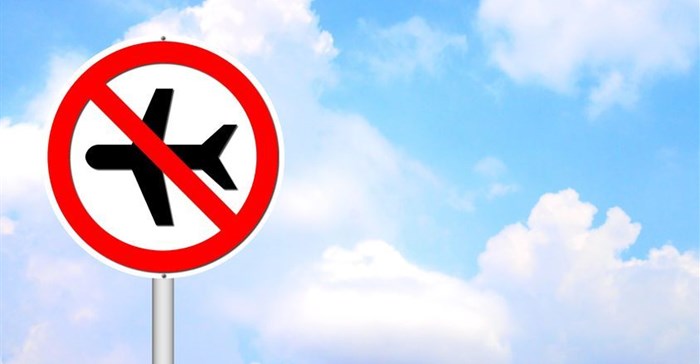While in Abuja recently, I read that Nigerian airline Med-View was on the list of carriers that had been banned from flying over European airspace.

© Thanapol Kuptanisakorn via 123RF
I mentioned it to my driver as we approached the airport. He was astonished. I explained the ban was related to safety issues. Is that all, he asked. "Med-View has never crashed."
This is a country where people know a few things about air crashes, with the worst rankings globally in this regard.
Air Zimbabwe was also included on 2017's EU Air Safety List of carriers that may not enter its airspace. It is not likely to be flying as far as Europe soon, though.
Dire financial situation
Its dire financial situation means that it is now concentrating on local and regional flights. And it suspended flights to the UK after one of its aircraft was impounded over unpaid debts in 2012.
Airlines from a dozen other African countries are on the list, including all airlines registered in Angola (except for national carrier Taag, which can fly into Europe with some restrictions), Democratic Republic of the Congo, Eritrea, Sudan, Sierra Leone and Gabon (with the exception of two airlines that operate under restrictions).
Africa's performance with regard to air safety, although improving, has fallen well short of global standards over the years. This is in spite of many efforts by various actors to improve the situation.
The AU, for example, initiated the Abuja Declaration for Aviation Safety in 2012 in recognition of the need to improve safety. It set a goal for African airlines to meet world-class safety levels by 2015.
Critical elements
Critical elements of the initiative included all African carriers completing the operational safety audit of the International Air Transport Association (IATA), the establishment of independent civil aviation authorities in member states and the implementation of safety oversight systems.
But by the target date, only 30 airlines had completed the safety audit and only 11 of those did so after the declaration was signed.
There are many other initiatives that aim to improve aviation safety and efficiency in Africa. For example, the EU's ban on airlines entering European airspace is just one element of its work in aviation. The European Aviation Safety Agency works with aviation authorities across Africa to improve their air safety.
Bans lifted
When airlines show improvements, the EU ban is lifted. Earlier in 2017, airlines from Mozambique and Benin were removed from the list. In 2016, all airlines certified in Zambia were unbanned along with Air Madagascar.
According to IATA, in 2016, sub-Saharan Africa had its best performance in the past decade with zero passenger fatalities and jet hull losses.
Pan-African airlines, including Kenya Airways, SAA, Ethiopian and Royal Air Maroc, have fared consistently well in IATA's rankings. But the organisation has said there is still a long way to go and is urging African governments to accelerate the implementation of safety standards and recommended practices.
For African aviation to play its proper role in benefiting local and regional economies, airlines and airports need to have globally aligned regulation, decent infrastructure and lower costs.
Even when in place, not always enforced
Even where the regulations are in place, they are not always enforced or are inconsistently applied; corruption undermines safety and enables the airlines to cut corners.
Poor infrastructure and inefficient systems at airports add to the often negative experience of flying around the continent.
Despite a proliferation of airlines, air transport in Africa accounts for only 3% of total world traffic.
This is a huge untapped market but one that is being held back by a lack of political will to develop an efficient, competitive and cost-effective sector that is a critical underpinning for a modernising Africa.
Source: BDpro








































